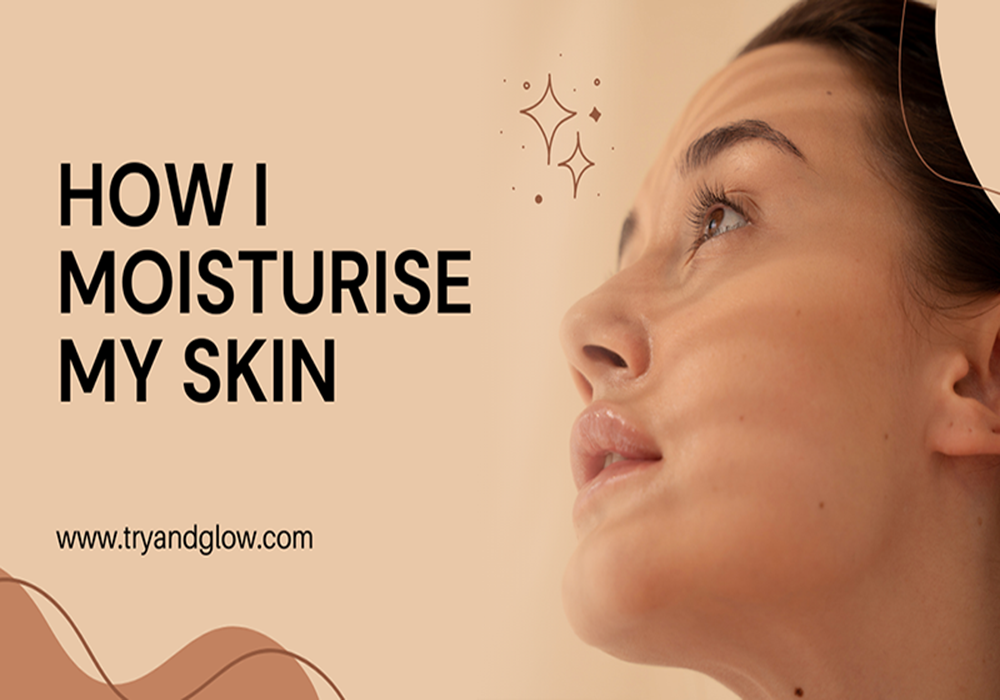Blog
🌿 How to Choose the Best Moisturizer for Your Skin

Introduction
Your moisturizer can make or break your skincare routine. The right one keeps your skin hydrated, balanced, and radiant while the wrong one may lead to breakouts, dryness, or irritation. With so many options on the market, from lightweight gels to rich creams, choosing the best moisturizer for your skin can feel overwhelming.
In this guide, we’ll break it down step by step so you can confidently select the perfect formula for your skin type and needs. Plus, we’ll spotlight a dermatologist-recommended favorite: CeraVe Moisturizing Cream.
1. Know Your Skin Type
The first step in choosing a moisturizer is understanding your skin type:
- Oily Skin → Look for lightweight, oil-free, gel-based moisturizers with ingredients like hyaluronic acid.
- Dry Skin → Go for thicker creams containing ceramides, shea butter, or glycerin.
- Combination Skin → Use a balanced formula that hydrates dry areas without clogging oily zones.
- Sensitive Skin → Choose fragrance-free, hypoallergenic moisturizers with soothing ingredients like aloe vera or oat extract.
- Normal Skin → You’re lucky — most moisturizers will work, but opt for a lightweight lotion with SPF for daily use.
2. Pay Attention to Ingredients
A moisturizer is only as good as what’s inside. Look for these key ingredients:
- Hydrators (Hyaluronic Acid, Glycerin) → Attract water to your skin.
- Emollients (Ceramides, Squalane, Shea Butter) → Smooth and strengthen the skin barrier.
- Occlusives (Petrolatum, Dimethicone) → Seal in moisture and prevent water loss.
- Soothing Agents (Aloe Vera, Chamomile, Niacinamide) → Calm irritation and redness.
⚠️ Avoid moisturizers with alcohol, heavy fragrances, or harsh essential oils if your skin is sensitive.
3. Consider Your Skin Concerns
Beyond basic hydration, your moisturizer can target specific concerns:
- Acne-prone skin → Non-comedogenic, oil-free formulas with salicylic acid or niacinamide.
- Aging skin → Anti-aging moisturizers with peptides, retinol, or antioxidants like vitamin C.
- Hyperpigmentation → Brightening moisturizers with licorice extract, vitamin C, or niacinamide.
- Redness/rosacea → Calming creams with green tea, oat extract, or azelaic acid. Try CERAVE BLEMISH CONTROL
🌟 Product Spotlight: CeraVe Moisturizing Cream
If you’re looking for a dermatologist-approved moisturizer that works for most skin types, CeraVe Moisturizing Cream is a top choice.
✅ Why it works:
- Contains ceramides to restore the skin’s natural barrier.
- Enriched with hyaluronic acid for deep hydration.
- Fragrance-free and non-comedogenic, making it safe for sensitive and acne-prone skin.
- Suitable for both face and body, ideal for dry to very dry skin.
Many dermatologists recommend it as a go-to daily moisturizer because it delivers hydration without irritation.
4. Don’t Forget SPF
If you’re choosing a daytime moisturizer, SPF is a must. Sun damage accelerates aging, causes pigmentation, and increases skin cancer risk. Look for broad-spectrum SPF 30 or higher in your daily moisturizer.
For nighttime, switch to a richer, SPF-free formula that focuses on repair.
5. Texture & Climate Matter
- In hot, humid weather, gels and lightweight lotions work best.
- In cold, dry climates, rich creams and balms (like CeraVe Moisturizing Cream) provide extra protection.
- Your moisturizer should feel comfortable — not greasy or tight.
6. Patch Test First
Before committing, always patch test a new product on your jawline or inner arm for 24–48 hours. This helps you avoid breakouts or allergic reactions.
7. Top Dermatologist-Approved Tips
- Apply moisturizer on damp skin after cleansing for better absorption.
- Layer serums underneath, then seal with moisturizer.
- If unsure, consult a dermatologist for personalized advice.
Conclusion
Choosing the best moisturizer for your skin doesn’t need to be complicated. Start by identifying your skin type, check the ingredients, consider your unique concerns, and match the texture to your climate.
✨ If you want a trusted, dermatologist-recommended option, CeraVe Moisturizing Cream is a safe bet for most skin types, especially dry and sensitive skin
Call-to-Action
💬 Found this helpful? Share this guide with a friend who struggles with skincare!
📩 Want personalized tips? Drop your questions in the comments or DM us for recommendations.
🌿 Ready to upgrade your skincare? Try CeraVe Moisturizing Cream and feel the difference.
